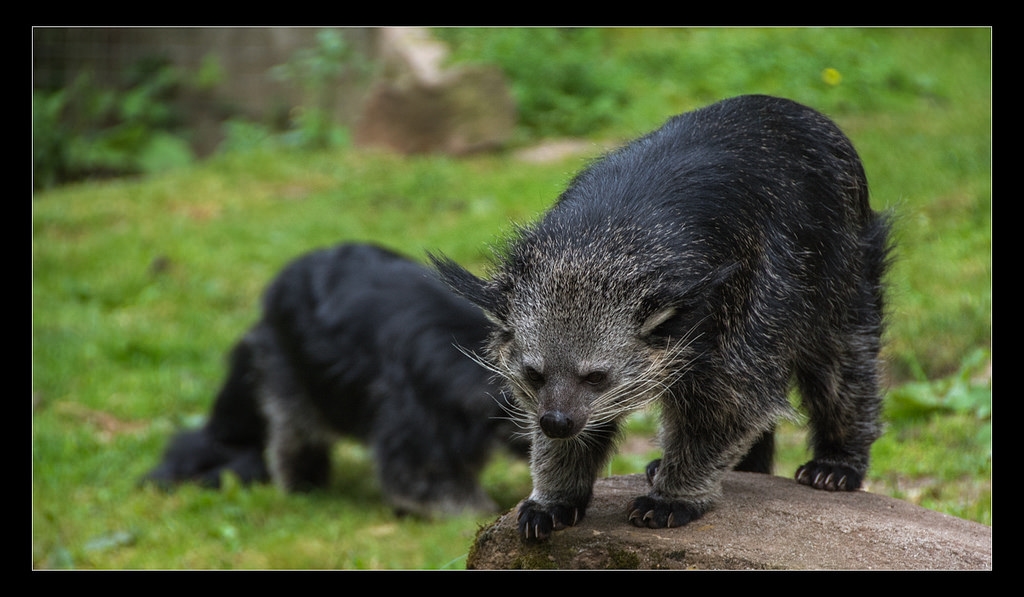How did you do with this week’s mystery creature? A cute but unusual looking animal, don’t you think? Some say it has a face like a cat and a body like a bear which is why it is commonly called the bearcat, but its proper name is the Binturong (Arctictis binturong).

Image credit: Pomax
The Binturong belongs to the viverridae family, making it a cousin to civets, genets, fossas and mongooses. These shy animals live in dense rainforests of Southeast Asia and tend to live solitary lives. They can grow to more than a metre in length; their strong, thick tails are about as long as their bodies. The females tend to be larger than the males, about 20% larger, and are the dominant sex of the species.
Binturong spend much of their time in the dense canopies up in the trees. Their thick tails are prehensile, and they use them like a monkey, to help them grip and hold branches when they move around. The top of their tails even have a short leather patch, to help with gripping.
Binturong move about the trees slowly and carefully, they are too large and heavy to jump from tree to tree and must instead climb down to the forest floor. Most of their time is spent in the trees, they even sleep up there. They are mainly nocturnal animals, sleeping for most of the day and emerging at dusk to feed. Although they eat some meat – such as birds and small mammals and insects, most of their diet consists of fruit and plants. They are good swimmers and will also feed on fish.
As with other members of the viverridae family, they have scent glands under their tails. To humans binturong smell like buttered popcorn and recent studies have identified the same compound, 2-acetyl-1-pyrroline(2-AP), to be found in both binturong urine and popcorn.
Binturong have a wide variety of vocal sounds; depending on its mood and what it wants to communicate it can make sounds like purrs, chuckles, growls, grunts and hisses.
They walk like bears and humans, flat on both feet with an ambling appearance. Unlike bears and humans, they can turn their ankles 180 degrees, allowing their semi-retractable claws to grip the bark of trees, no matter what direction the animal is facing.
It is thought that females can delay implantation of their fertilised egg. This means that they can time the birth of their young to the most favourable season.
Due to their fruit rich diet, binturong play an important part in seed distribution within the tropical rain forests they inhabit. They are particularly important to strangled fig plants as their digestive systems contains rare enzymes, capable of breaking down the fig seed’s tough outer coating, allowing the seeds to be dispersed in the binturongs droppings.
Binturong have no known predators other than humans but are classes as vulnerable, with a population decline of more than 30% over the past 30 years.
*******
Remember to check back tomorrow for a new mystery creature; I found the binturong a cute, and fascinating animal, especially the fact that it smells like popcorn, what did you think?
Pingback: Mystery Creature of the week - Dr. How's Science Wows
My two buttered popcorn lovers thought this was hilarious.
Great read.
Thanks, it is quite amazing, lovely cute animal too